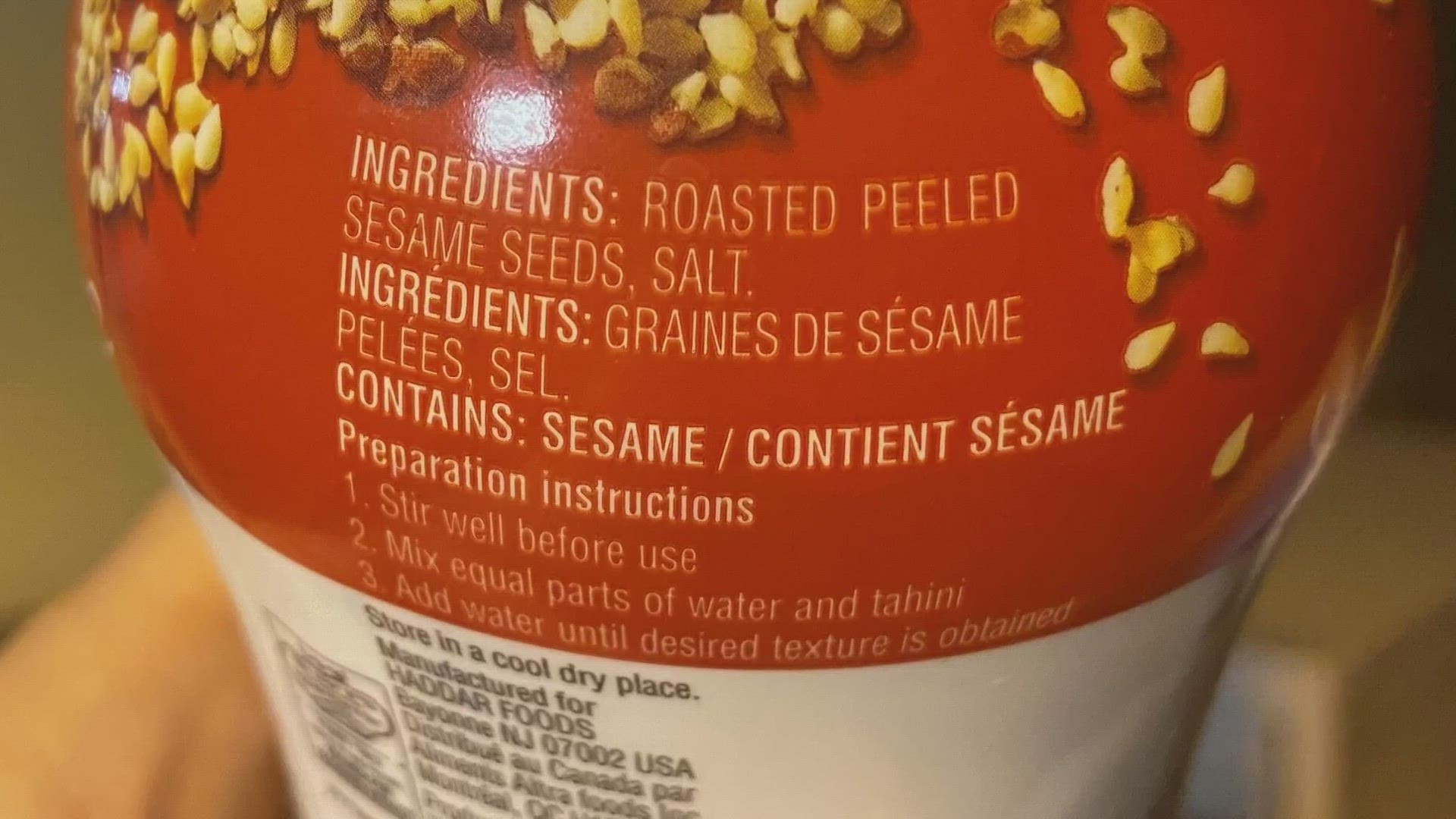DENVER — A new federal law was supposed to help people with a food allergy stay safe.
Instead, many food manufacturers and restaurants have started adding sesame to foods, rather than working to eliminate it. Patients with a sesame allergy and their doctors said that goes against the spirit of the law, and is causing unintended consequences.
But rather than meet the much stricter requirements to eliminate sesame or cross contamination, many companies decided to add, often in flour form. Food experts told the Associated Press its a simpler and cheaper way to follow the law.
“We’re all so disappointed we’ve seen so many companies do that,” said Dr. BJ Lanser, a pediatric food allergist at National Jewish Health.
“You would never expect it, in a cinnamon raisin bagel... Why would you ever put that in your bagel? We don’t need sesame seeds or flour in those products. It’s not adding anything important. It's just there in small amounts to be able to check a box and say it’s there,” he said.
Lanser said his patients are discovering foods that were once assumed sesame-free and gave them no trouble, now have the ingredient listed and therefore, restricted.
“It has absolutely made life more challenging for our patients with sesame allergy, and it was challenging enough to begin with. So really an unfortunate effect and one that is not consumer friendly or food allergy friendly, by any means.”
Keely Graff is one of Lanser’s patients. The 13-year old has a long list of allergies: dairy, eggs, peanuts, several nuts, flax and sesame.
“My body starts to shut down,” she said. “First I get hives all over my body, then I start overheating, then my throat starts to close, and then I need an Epi-Pen.”
Considering her food limitations, Graff is getting pretty good at avoiding dangerous foods. Prior to the new law, she said it was easy to figure out which foods had sesame and which did not.
“Usually, it has seeds. You could spot it and knew it had sesame,” she said. “Now it's definitely harder because they’re putting it in flour, so it’s harder to see unless I physically taste it.”
Lanser and his patients work together to identify which foods remain safe, and which should now be avoided: brands, restaurants, even specific food items on various menus. Graff’s family had to quit buying a brand of hot dog buns they used to rely on, because she said they now include sesame flour.
Many patients were counting on this law to make their lives easier and safer. That hasn’t been the actual result.
“I think it was one step forward, two steps back,” she said.
“It wasn’t the expected outcome by any means,” Lanser said. “We thought things were going to get better in 2023, but we were wrong.”
SUGGESTED VIDEOS: Latest from 9NEWS

